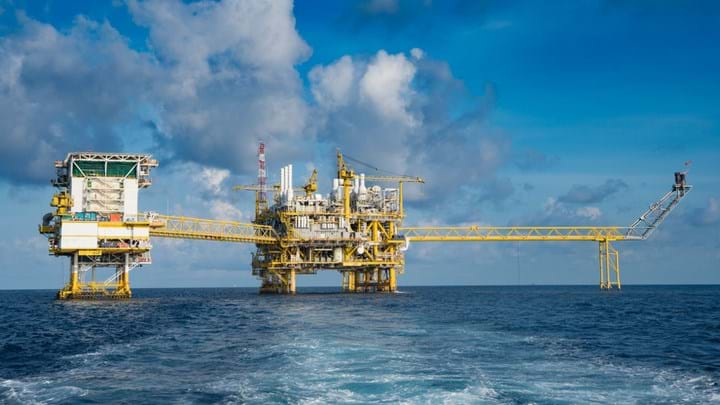OGUK calls for urgent action to prevent up to 30,000 job losses

UPTO 30,000 jobs in the UK's oil and gas industry are at risk due to the coronavirus pandemic and low oil prices, industry trade group Oil & Gas UK (OGUK) has warned. It has called for urgent action to protect jobs and energy security, whilst placing net zero at the core of recovery plans.
Oil prices on the Brent benchmark fell to a 20-year low on 22 April, down to US$16/bbl. This followed a historic slip of the West Texas Intermediate (WTI) crude benchmark on 20 April when oil prices briefly went negative due to overcapacity and lack of local storage. This meant that sellers had to pay buyers to take their product. Among this turmoil, gas prices fell to their lowest levels for 14 years, OGUK says.
OGUK’s report, Business Outlook: Activity and Supply Chain, was published yesterday following a member survey.
According to the report, all the exploration and production companies which responded, along with 93% of responding supply chain companies, reported a ‘worse’ or ‘significantly worse’ outlook for 2020 compared to last year.
Up to 30,000 direct and indirect jobs could be lost over the next 12–18 months, though the report notes that estimates over this period are uncertain. Additionally, drilling activity could fall 50% compared to 2019 levels, which would achieve record lows.
Furthermore, capital expenditure is expected to fall to between £3.5–4bn (US$4.35–4.97bn), the lowest level observed since 2000. Operational expenditure is expected to fall to around £6–7bn, which is 10–20% lower than what was expected at the beginning of the year.
OGUK adds that revenues and margins across the supply chain are also expected to fall by about 20–30%. Total revenues for the supply chain (from both the UK and export markets) could potentially fall to less than £20bn, almost half the revenues seen in 2014. Margins could fall to between 4–5%, marking a 55% decline over the same period.
To protect industry and help to prevent losses, OGUK proposed a three-stage framework to UK and Scottish governments, which involves supporting industry, stimulating recovery, and accelerating the industry’s shift to net zero.
Firstly, to support industry, OGUK proposes that government extend the schemes that allows companies to furlough staff to the end of June. OGUK proposes that this is extended with a definite end date of at least at the end of 2020, rather than a rolling extension. According to OGUK, almost 30% of companies who responded to its survey secured funding through a government scheme, and 43% are evaluating whether such an option is required as well as their access to schemes.
Secondly, OGUK asks that governments commit to working with industry to develop proposals that support recovery. According to OGUK, stimulating new demand will be determined by international competitiveness and attractiveness for investment, and it is vital that government supports industry in this regard. It adds that industry must retain a sector-leading and progressive regulatory, fiscal, and policy framework.
Thirdly, OGUK proposes that government should work with industry to develop a sector deal that will accelerate the UK towards a net zero future. This should build on the industry’s supply chain strengths to help unlock decarbonised energy resources, including the development of carbon capture and storage, and hydrogen.
OGUK called on governments and regulators to support the framework.
Industry has been “profoundly” affected by the coronavirus crisis said OGUK CEO Deirdre Michie. Yesterday, BP reported that its earnings for the first quarter compared to the same period last year were down 66% to US$800m.
Michie said: “With historic low oil and gas prices coming so soon after one of the most severe downturns our sector has experienced, these findings confirm an especially bleak outlook for the UK’s oil and gas industry. If the UK is to maintain its supply of domestic energy, protect jobs and build the critical infrastructure it needs to transition to a net zero future, ours is an industry worth fighting for.”
FT reports that oil prices rebounded today, fuelled by hopes that the glut in global crude was easing and the expectation that global economies would reopen and encourage a rise in demand. WTI rose more than 16% to US$16.40 and Brent went up 5% to US$21.45/bbl. The report adds that the market has faced sharp price swings in recent days due to trader concerns that a drop in demand due to coronavirus would lead to storage problems for the oversupply of oil.
On 12 April, in a bid to shore up the oil markets, OPEC announced that its oil-producing member nations had agreed to cut global output by 10% (9.7m bbl/d). The International Energy Agency said this considerably short of the drop off in demand, estimating it had plunged by 29m bbl/d in April – but it referred to the cuts as a “solid start”. Cuts from non-OPEC producers, including in the US and Canada, could see output fall by a further 3.5m bbl/d.
Recent Editions
Catch up on the latest news, views and jobs from The Chemical Engineer. Below are the four latest issues. View a wider selection of the archive from within the Magazine section of this site.




